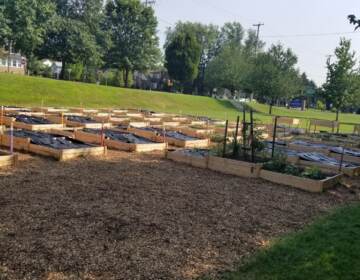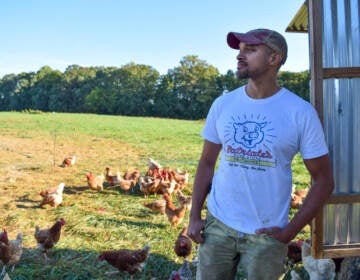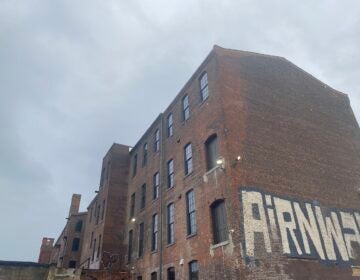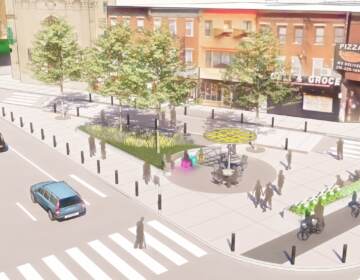At Life Do Grow farm, North Philly residents plant the seeds of a sovereign future
The farmers at Life Do Grow, a green oasis run by Urban Creators, a nonprofit, provide food for hundreds of North Philly families. They need support.
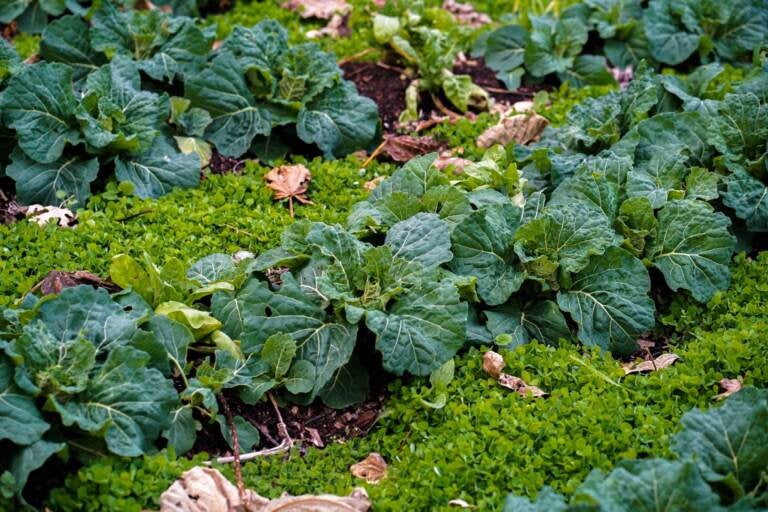
Collard grows at the Life Do Grow urban farm in North Philadelphia. (Photo courtesy of Urban Creators)
At the start of the pandemic, there was hunger in the streets of North Philadelphia.
I was part of a team of folks that my organization, Urban Creators, was working with to distribute free, locally sourced meals to those in need, as well as free diapers, PPE, menstrual products and fresh produce. COVID-19 had thrown into sharp relief all of the community’s injustices around race and class, as so many out-of-work families were suddenly going hungry.
I remember feeling overwhelmed by the lack of awareness that our society was putting towards addressing these issues I was seeing first hand and which were clearly leading to so much undeserved human suffering. I knew then, that feeding people, while absolutely critical to continue, was not enough. I had to help them reclaim their power to feed themselves.
Over the last two years, Urban Creators has begun a transformation from an organization focused on urban sustainability to one focused on food sovereignty. As our community’s challenges continue, we are looking to grow our outreach and education efforts, and we need the public’s support.
The first thing you need to know about Urban Creators is that we aren’t just talking about these concepts — we are bringing them to fruition. We run Life Do Grow Farm, a three-acre green oasis on a previously vacant lot in the heart of North Philadelphia. It’s a working urban farm, a center for outdoor education, a badly needed community space, an employment center for students and people returning from incarceration, a demonstration site for sustainable technologies, and a rallying point for community organizing and action. It’s taken us years to build up this space into the beautiful sanctuary that it has become, and we’re enormously proud and grateful for the thousands of hours of volunteer work that have gone into it.
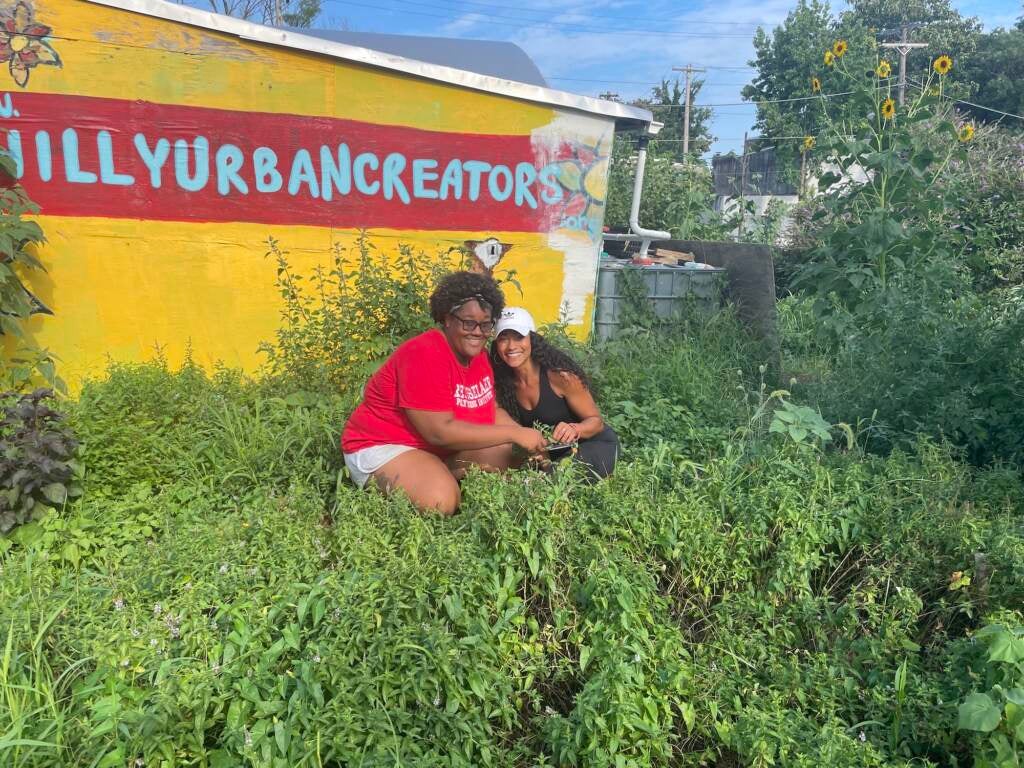
The farm is the centerpiece of Life Do Grow. It grows enough food to provide fresh produce for hundreds of local families each year and provides infrastructure for an additional 16 families to grow their own food. We’ve established another four community gardens and eight school gardens at different locations throughout North Philadelphia. It’s through urban farming that we implement many of the values and practices at the heart of food sovereignty.
Having food sovereignty means not being hostage to outside forces dictating what foods are accessible to you. It means having control over the production of your food, or at least control over how it is produced and delivered to you. This is something that many wealthier people may take for granted, but in North Philadelphia it is far from common.
North Philadelphia is living in a food apartheid. Fresh foods that are also culturally appropriate—true to the values and necessary for the recipes of the community’s culture—are often not economically accessible to North Philadelphia residents. Many of them are working-class people who are raising families, working multiple jobs, or both. They don’t have time to take public transportation across town to reach the Whole Foods for quality, organic food, especially when that food has been priced out of their reach.
So instead, parents stop at the corner bodega to buy breakfast as they take their kid to school, and breakfast for that child might be a Tastykake or something of the like. Those are families doing the best they can with the only option they have. But it’s what leads to so many of the health disparities we know exist in the Black community, who suffer from high blood pressure, diabetes and stroke at sharply higher rates than white people, even at a young age. It is another form of oppression.
What do these folks really want, if it were up to them? Fresh collard greens and kale are the most popular requests when we surveyed our community. So that’s what we grow at our farm. Food sovereignty means having the right to foods that are culturally appropriate for you. It means healthy and ecologically sustainable foods, and the right to define your own food and agriculture system.
Starting in 2021, we’ve expanded our work to spread the word of food sovereignty in our community, more than ever before. We launched a series of 12-week workshops, provided for free to the community, run by three powerful, wise women of color: a wellness entrepreneur, a geochemist, and a professional chef. They taught lessons on how to use locally grown herbs and plants as medicine, how to test and understand soil and prepare it for planting in even the most economically exploited areas, and how to cook some of the healthiest and most nourishing recipes of our African ancestors. Everyone left with something tangible that they needed — and they also left with the skills they need to be able to reclaim their own power by growing their own food, tending their own land, and having a say in their own food system.
We want to continue these workshops and the other work we do which has engaged over 7,000 students and volunteers, but we can’t do it without public support. We hope everyone with an interest in building the resilience, independence and power of North Philadelphia will consider giving to Urban Creators.
Elizabeth Okero is the Director of Operations for Urban Creators.

Subscribe to PlanPhilly
WHYY is your source for fact-based, in-depth journalism and information. As a nonprofit organization, we rely on financial support from readers like you. Please give today.



